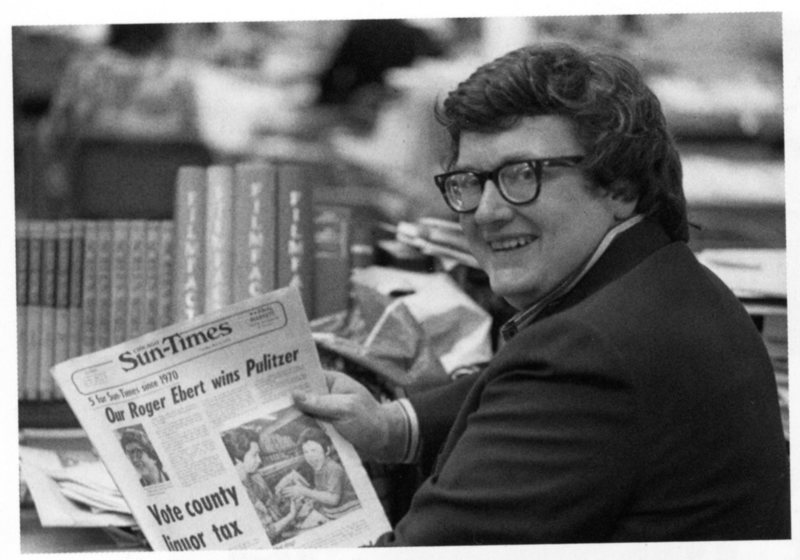Sorry, but if you are looking for objectivity in this particular review, it will be rather difficult to find. You see, “Life Itself,” is about one of my literary (and professional) heroes, the late, great Roger Ebert.
The documentary, based on his memoir of the same name (available On Demand), is most likely going to be difficult for many of us who still work in the ever-shrinking field of film criticism to approach with an impartial eye. For even those who have the most cursory knowledge of writing about film have been influenced in some way by this titan.
From Ebert's rather meager beginnings to his rise as perhaps the most influential critic of his time (in any art form), to his debilitating battle with cancer, director Steve James covers a life well lived. Ebert, even though he may have admitted at times to being shy, was Bunyan-esque in his influence. His imprint was left not only in journalism, but pop culture and even the industry in which he critiqued.
Hell, even today you see YouTube commenters (inaccurately) giving videos “two thumbs up,” likely not even realizing the source of their rating, or the fact that the two thumbs came from two different individuals).
Steve James, the director of “Hoop Dreams,” chronicled Ebert's life from footage, pictures, interviews and film clips with much the same care, dignity, sarcasm, and humor as Ebert approached his reviews.
Those familiar with Ebert's path - from an early Pulitzer, to writing "Beyond the Valley of the Dolls," to half of "At the Movies" television show - will still find many kernels of information about his life to make this documentary engrossing. James snags multiple friends, colleagues, family members, drinking buddies, and filmmakers to sing Ebert's praises. He was even given access to his final days, as the man was left unable to speak (but far from voiceless!) and ravaged by cancer.
The latter is one of the most emotionally resonant parts of "Life Itself." We not only get a glimpse of his unwavering optimism while confronting his grim reality, but also the love and support of his oak-strong wife Chazz. This aspect of the film seems a direct result of the relationship he shared with his other life partner, Gene Siskel, who unexpectedly (to Ebert and us) died from cancer in 1999. That death perhaps served as Ebert's impetus for going public with his bout, and James covers it without it feeling exploitative or intrusive.
It's easy to see why Ebert gave James, who so respectfully covered dashed (and accomplished) basketball hopes in "Hoop Dreams," the keys to his castle. For despite all his physical limitations late in life, Ebert's warmth and humor shine brightest.
"Life Itself" is a fitting ode to a type of individual we perhaps may never see again - let's face it, film criticism is not necessarily considered a viable career choice anymore. In a time when criticism meant having a love and respect for not only the subject you covered, but the words you chose in which to convey it to the public, he was unequaled in stature and style. He was literate but accessible, amusing but dead serious about his subject matter, and, above all, boundlessly enthusiastic about film.
I learned more from him than perhaps any college film class (sorry, Dr. Ross), and have been introduced to cinema well beyond my local video store's borders because of his wisdom. "Life Itself," like the memoir and the man, is a testament to dedication to conviction and passion.
It tells the story of someone for whom this writer will forever "save an aisle seat."





















































